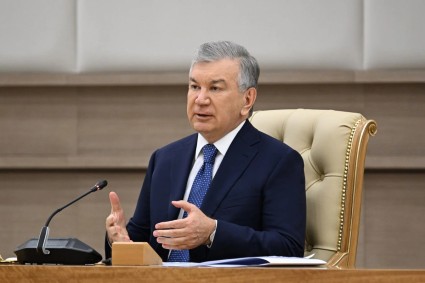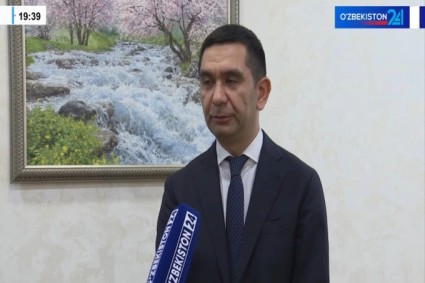At a conference call government meeting Wednesday, President Shavkat Mirziyoyev touched upon job legalization and pointed to the need to take a significant ratio of employment out of the shadow economy.
According to Shavkat Mirziyoyev, assistants to governors and mayors and tax inspectors in neighborhoods must actively conduct outreach work and take a targeted approach on employment, and achieve legalization of at least 250,000 workers by 2026.
He pointed to the recently signed decree on social insurance, according to which the government will take on paying sickness and maternity benefits for private sector employees and emphasized that this would be an "important mechanism and a serious incentive" for shifting to formal employment.
The National Agency for Social Protection and provincial governors have been given directives to implement the new system and bringing 100,000 jobs out of the shadow economy next year and another 200,000 in 2027.
Starting in 2026, a new social insurance system will be implemented in the country, covering not only public sector workers but also those in the private sector. Women in the private sector will be able to receive maternity benefits, and all employed people will receive temporary disability payments.
According to the August 4 presidential decree, Uzbekistan plans to hold employers who allow informal employment administratively liable, with a fine of 30 BCUs (12.36 million soums), and for repeat offenders, 100 BRV (41.2 million soums). The Ministry of Employment stated that this step was aimed at legalizing labor relations and protecting workers' rights.
As of August of this year, of the 14.213 million employed people in the country (94% of the working-age population), 5.5 million people (38.8%) work in the informal sector. Of these, approximately 88.6% were in the following trades:
- Construction — 147,009 (2.7%);
- Restaurants — 133,665 (2.4%);
- Agriculture — 3,120,851 (56.6%);
- Services — 1,478,408 (26.8%).













